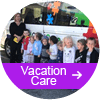Internet Safety for Pre-schoolers
Internet Safety for Pre-schoolers: Virtually all responsible parents and care providers will have understandable concerns about their pre-school children using the internet.
Given the net’s all-pervasive nature in the 21st century, internet safety for pre-schoolers is of paramount importance.
The ultimate reality of internet safety for pre-schoolers
It is a painful fact that there are only two sure-fire ways of being 100% sure your pre-schoolers are entirely safe in terms of internet risks:
- to ban their use of it entirely;
- to ensure they only use it when you or another responsible adult (but remember – that other adults may not share your exact views of what is harmful or not) are in attendance and supervising.
There are, of course, various child-friendly search engines and various software locks that should but only should, protect your child. However, even the providers would probably concede that they could not unconditionally guarantee that such mechanisms are 100% foolproof.
If we also consider the potential benefits of the net for children’s education, then locking them entirely out of it probably isn’t feasible or desirable.
So, what is the answer?
What are the risks?
Doing nothing and allowing your child unrestricted access will not be, for most parents, a viable option. That’s because children on the net are vulnerable to risks under headings such as:
- content. This usually means them seeing material that you consider to be inappropriate for their age and psychological well-being;
- engagement/contact. This usually means your child unintentionally contacts someone undesirable or disturbed, who may be deliberately misrepresenting themselves, through “chat” buttons or similar;
- committal. These risks arise from apps that have “click to receive our emails” type buttons. While these would be unlikely to put your finances at risk, you may start receiving sales and other explicit materials you could do without;
- behavioural influences. This can arise when behaviours or language you do not approve of are learned and emulated due to things like computer games.
These risks are very real.
Developing a plan
Many experts recommend developing an education plan for internet use.
Just as over time you will teach your young children what is physically harmful, such as “don’t touch electric plugs”, you can do the same for internet use.
The precise nature of that plan will be heavily influenced by what you consider to be harmful or otherwise and inevitably, some guidance will be dependent upon your child’s unique reading and comprehension level – something that can vary considerably in the immediate pre-school years.
What is important is that your child’s internet safety education develops over time in line with their age and ability levels. One possible approach may be:
- all use initially to be accompanied-only;
- moving on to permitting their use of child-safe websites and search engines, which you have previously approved and checked;
- enabling the ‘child-safe’ locking systems now available in some operating systems;
- making sure you understand the use of search engine history facilities to check what your child has been browsing and using;
- introducing some of the above risk categories and teaching them how to avoid such and spotting when things are embedded in a site or game;
- allowing their individual use but only when you are round and about to periodically check on their progress.
Sooner or later, you will need to start trusting your child to use the net unsupervised or at least unsupervised in close detail. That will take some planning and teaching internet safety to achieve in a way that provides you with confidence that your child is as protected as possible.
Do want to ensure that you child should know about Internet Safety? Contact us.













